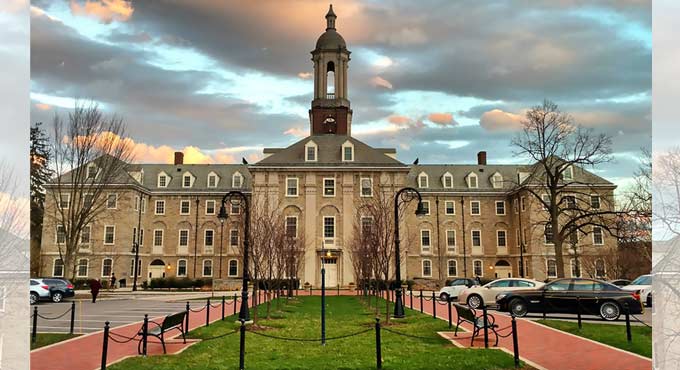Penn State University: Trustees receive update on status of Penn State’s 2022-23 state funding request
Zack Moore, vice president for Government and Community Relations at Penn State, updated the University’s Board of Trustees on the status of Penn State’s 2022-23 state funding request during a meeting today (Feb. 17) of the Committee on Finance, Business and Capital Planning.
Moore provided an overview of Pennsylvania Gov. Tom Wolf’s proposed $43.7 billion state budget for 2022-23, which was announced on Feb. 8 and includes a total appropriation for Penn State of $357.4 million, an increase of $18.5 million over the current fiscal year. The governor’s budget aligns closely with the funding request that the University submitted to the state last September. It includes new funding of $2.35 million for Invent Penn State and 5% funding increases for the University’s general support appropriation, Penn State Agricultural Research and Cooperative Extension, and Pennsylvania College of Technology in Williamsport.
Moore noted that the governor’s proposed increase for Penn State will require the approval of the General Assembly in order to be included in the state’s final budget package, which is expected before the end of the current fiscal year on June 30. Penn State’s last appropriation increase was a 2% rise in 2019-20.
A summary of the governor’s proposed funding for Penn State is as follows:
Penn State’s general support appropriation: $254.2 million, an increase of $12.1 million or 5%. The general support appropriation is applied entirely to Penn State’s education budget and allows the University to offer an in-state tuition rate that benefits 45,000 Pennsylvania resident undergraduates and their families each year.
Penn State Agricultural Research and Cooperative Extension: $57.7 million, an increase of $2.7 million or 5%. Increased state support is vital to Penn State’s efforts to support agricultural education, serve rural communities, and help to address the challenges facing the state’s agriculture industry in all 67 Pennsylvania counties. Agricultural research and extension programs are not supplemented with tuition dollars, so funding increases are needed to keep pace with inflation and to leverage matching federal and county funding.
Pennsylvania College of Technology: $28.1 million, an increase of $1.3 million or 5%. Increased support for Penn College, a special-mission Penn State affiliate with a focus on applied technology education, would help to fund upgrades to laboratory facilities and equipment and expand instructional capacity in high-demand fields.
Invent Penn State: $2.35 million in new funding in support of economic development. This funding would help the University to strengthen and grow the Invent Penn State LaunchBox and Innovation Hub Network across Pennsylvania, expand established entrepreneurship training programs and startup pitch competitions with additional staffing and support services, and increase access to the Pennsylvania Technical Assistance Program to support more businesses.
Penn State Health and the College of Medicine: $15.1 million, which maintains current funding. Penn State had requested a $756,000 funding increase to support the preparation of medical students for careers in primary care and rural medicine through the development of the Regional Medical Campus at University Park.
Penn State’s proposed appropriation is part of across-the-board increases in education funding in the governor’s budget proposal, Moore said, including a 5% increase for the state’s other state-related institutions; a 15% increase for the Pennsylvania Higher Education Assistance Agency (PHEAA); and a 22% increase for K-12 education.
Penn State leadership will engage with lawmakers in Harrisburg to discuss the value of the University’s state appropriation and the need for increased funding during budget hearings before the Senate and House appropriations committees on March 3 and March 8, respectively, and during Advocate Penn State Capital Day on March 30. Moore encouraged trustees and others to visit advocate.psu.edu to join fellow Penn Staters in advocating for the University’s budget priorities.

